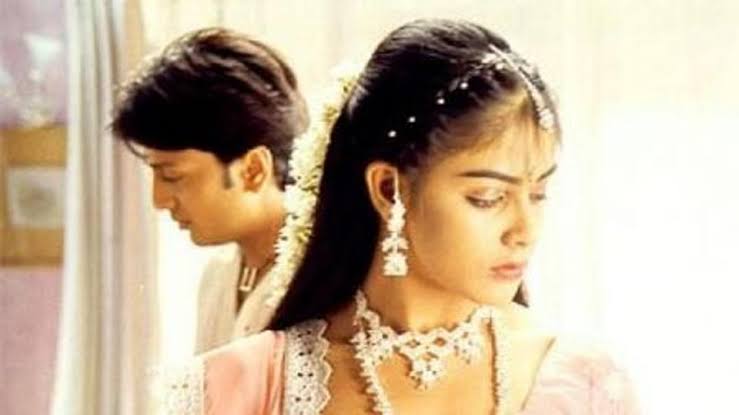‘Tujhe Meri Kasam’, a film which marked the debut of Riteish Deshmukh and Genelia Deshmukh (then D’Souza), completes seventeen years of its release today. The film released on 3 January, 2003 and ran to packed houses for more than 100 days in several theatres in states like Bihar, Jharkhand, Madhya Pradesh, Chattisgarh, certain areas of Maharashtra and a few others. The way this film performed at the box-office makes for an interesting case-study. While in the aforementioned centres, it outperformed some of the bigger films featuring established names, in other centres it did just about average business and was declared a semi-hit in the final tally. This was a strange, rare scenario and it would be interesting if some trade analyst decides to do elaborate research on the business of the film.
I was in school and living in a small town in Jharkhand called Hazaribagh. I vaguely remember some of my family friends trying to get tickets for the film for the first couple of days after its release but failing to do so. A few weeks later, tickets were finally arranged and we went to a single-screen theatre to watch the film. ‘Tujhe Meri Kasam’ was a remake of the Telugu film ‘Nuvve Kavali’ (produced by the same producer – Ramoji Rao) which itself derived its source material from the Malayalam film ‘Niram’. The film depicted the tale of two friends Rishi (Riteish Deshmukh) and Anju (Genelia Deshmukh) who, incidentally, were born on the same day, in the same hospital. Rishi and Anju are neighbours who grow up to be best friends and cannot imagine a day without each other. Despite being so close to each other, they fail to realise they have feelings for each other and look for love elsewhere. I thoroughly enjoyed the film and hoped to watch it again when it would come out on DVD or on television. Alas, that never happened.

As is the case with many films produced by Ramoji Rao, the satellite or home video rights of ‘Tujhe Meri Kasam’ were never sold. Instead, the producer decided to keep re-releasing the film at regular intervals in different towns and cities. Even the album, which was released by Rao’s Mayuri Audio, cannot be found on any streaming platform. Thankfully, I have carefully managed to keep the audio cassette, which I bought in late 2002, safe. The film mostly gets re-released in smaller centres – on 5 November, 2016 Riteish tweeted – “Tujhe Meri Kasam – Our debut film playing in the theatres along with the latest releases in Maharashtra (Nanded) #14thYear #ThankYou #Love”. Nanded is a small town in Maharashtra and it is one of those places where the film has seen a release for itself a good number of times in the last couple of years.
Apart from Riteish and Genelia, the film also marked the debut of Shriya Saran in Hindi films. Shriya had played a supporting part in the film – her character was called Girija who was in love with Rishi. Shriya had done a handful of films in South before that and was to become a huge name in the Southern film industry in times to come. The music of ‘Tujhe Meri Kasam’ was very popular when it came out. The title track can still be played in public transport or in the homes of people in smaller towns. Sadly, the music is not available to be downloaded or streamed officially. The title track, sung by Udit Narayan and Sadhna Sargam, was the most popular song from the film. The film also featured a song titled ‘Azaadi Hai Pyaari’ which was the first song sung together by Shaan and Shreya Ghoshal.

After ‘Tujhe Meri Kasam’, Riteish and Genelia worked together in ‘Masti’ (2004) and ‘Tere Naal Love Ho Gaya’ (2012). One also got to see them together in a song in ‘Lai Bhaari’ but of course, watching them together in a film is something fans have been waiting for a while. A lot of people, who missed out on watching ‘Tujhe Meri Kasam’ in the theatres, did not even had the opportunity to watch them in their debut film. Now, on the film’s 17th anniversary, one just hopes the film comes out someday on TV or a streaming platform and people get to see or revisit this sweet, entertaining film again.

